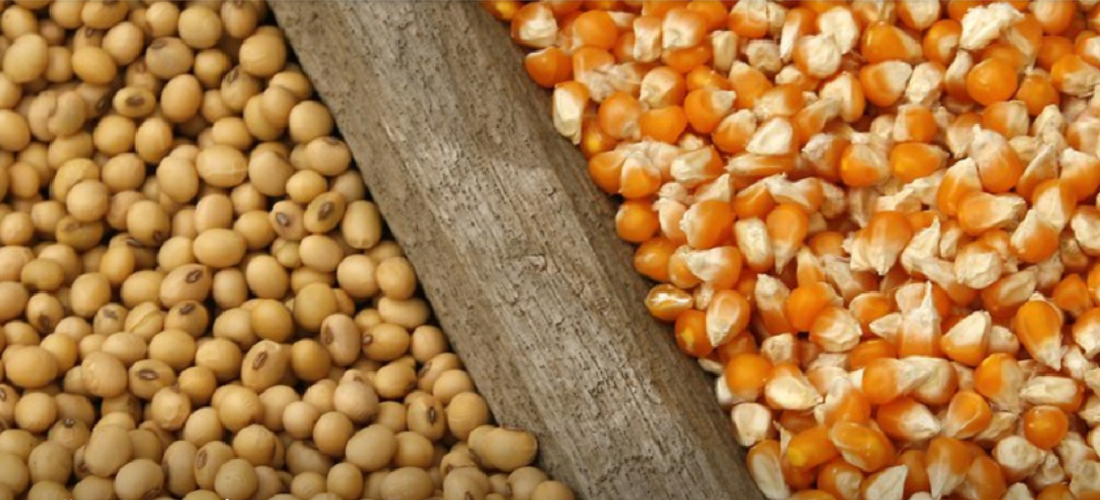
Foreign Trade Chamber waives taxes on soy and corn imports
Oct, 19, 2020 Posted by Ruth HollardWeek 202043
In order to balance the supply and demand of grains in the domestic market and to contain high prices, the Executive Management Committee (GECEX) of the Chamber of Foreign Trade (CAMEX) decided to zero the import tax rate for soybeans and corn. In the case of soybeans, the temporary reduction will be valid until January 15, 2021, and will cover NCMs codes 1201.90.00, 1507.10.00, and 2304.00.10 that concern soybean grain, bran, and oil. As for corn (NCM 1005.90.10), the product was included in the Brazilian List of Exceptions to the Common External Tariff (LETEC), with a reduction from 8% to 0%, valid until March 31, 2021.
The decision was made last Friday, October 16th, during GECEX’s 175th Extraordinary Meeting upon proposals by the Ministry of Agriculture and Food Supplies (MAPA) to reduce the soybeans tariff and by the Ministry of the Economy to reduce the corn tariff.
The worldwide increased demand for food caused by the Covid-19 pandemic generated similar reflexes in the markets related to these two commodities, but for different reasons. In the case of corn, there was an increase in domestic consumption to supply the production of animal protein, which registered growth in exports. This movement has been registered for the last two decades at a rate of 14.3% per year.
In the case of soybeans and derivatives such as bran and oil, there was also an increase in foreign sales, which gained momentum with the appreciation of the dollar.
According to MAPA, there is no expectation of a product shortage. The objective is [of the tariffs] is to promote an adjustment between the supply and demand of these products in the period prior to the harvest of the 2020/2021 harvest, which occurs from the beginning of next year.
Scenario
This year, Brazil is harvesting a record soybean crop, estimated at 124.8 million tons, according to CONAB, the national supply company. However, the devaluation of the real caused a price increase, making it more attractive for export, especially when coupled with the increase in external demand, notably from China.
Corn should register a harvest of 102.5 million tons, an increase of 2.5% in relation to the previous harvest. The foreign exchange factor has also contributed to facilitate foreign sales, which totaled 20.5 million tons between January and September and are expected to close at a level above 34.5 million tons.
On September 9, CAMEX zeroed the import tax rate for paddy and processed rice until December 31 of this year, upon request from the Ministry of Agriculture. In this case, the temporary reduction is restricted to a quota of 400,000 tons. By the beginning of the month, Brazil had already negotiated 225,000 tons of rice from the United States, India, and Guyana which is expected to enter the country by November.
In the case of corn and soybeans, there was no import quota announced.
Gecex
GECEX is CAMEX’s collegiate executive nucleus, responsible for defining import and export tax rates, establishing trade defense measures, and internalizing rules of origin of commercial agreements, etc.
According to Decree 10.044 / 2019, GECEX is integrated by the Presidency of the Republic, by the ministries of Economy, Foreign Affairs and Agriculture and Food Supplies.
-
Trade Regulations
Feb, 20, 2025
0
Brazil and Portugal push to advance EU-Mercosur trade deal
-
Other Cargo
Jul, 30, 2024
0
Chinese Taipei gives greenlight to Brazilian shipments of pet food derived from dairy
-
Ports and Terminals
Jun, 01, 2022
0
Logistical chaos at ports could end in a legal battle
-
Grains
Sep, 14, 2021
0
Agribusiness exports reach a record US$ 10.9 billion in August



